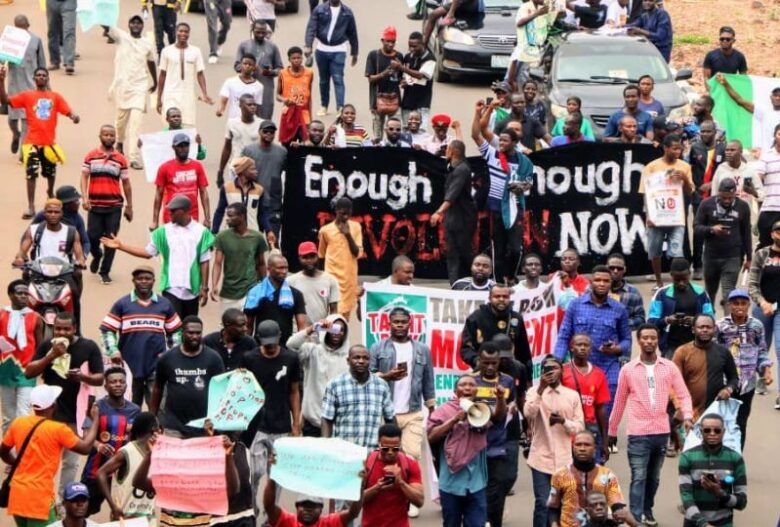The seven Polish citizens were detained earlier this month in the northwestern state of Kano “over their suspicious role in the protest and flying of Russian flags”, according to the Nigerian national security agency.
The Polish authorities, however, said they were University of Warsaw students and a teacher, who found themselves “in the wrong place at the wrong time”.
Polish Foreign Minister Radoslaw Sikorski said the group had now been released.
“I would like to confirm that the young people are already free, back in Kano, on campus, with passports,” Sikorski said in a video posted on X, formerly Twitter.
“I think the young people received an accelerated lesson in African studies… I hope they will be back in the country soon,” he added.
When and why were they arrested?
The seven were in Kano as part of a program to study the Hausa language. They were detained earlier this month during a political protest. Nigeria’s secret service said on August 7 that they had been carrying Russian flags at the demonstration.
Officials in Poland, which has frosty relations with Russia following the Soviet era and other historical grievances, responded skeptically to this, saying it seemed unlikely and that they believed the situation was more likely a misunderstanding.
“Our students were at the wrong time at the wrong place,” Foreign Ministry spokesman Wronski said.
The seven had been held at a Kano hotel while Warsaw was actively seeking their release.
Widespread protests against economic situation and policy in Nigeria
Hundreds of thousands, many of them young people like students, took to the streets across several Nigerian cities this month. These protests followed months of escalating pressure, including significant strikes that resulted in a modest increase in the national minimum wage.
The demonstrators protested against inflation and other economic policies implemented by President Bola Tinubu.
One of Tinubu’s first actions after taking office last May was to end government subsidies on petroleum, a move he claims will free up billions for more productive investments in areas like education and healthcare.
However, trade unions argue that this decision disproportionately impacts low-income individuals and has contributed to year-on-year inflation, which reached just over 34% in June.
The country has seen widespread hardship as a result of the policies. Many young Nigerians including activists initially called for “10 days of rage” nationwide, but the demonstrations lost momentum as the government ramped up its security response and after Tinubu made a public appeal for calm.
Amnesty International reports that at least 22 people died during the unrest.









Got a Question?
Find us on Socials or Contact us and we’ll get back to you as soon as possible.